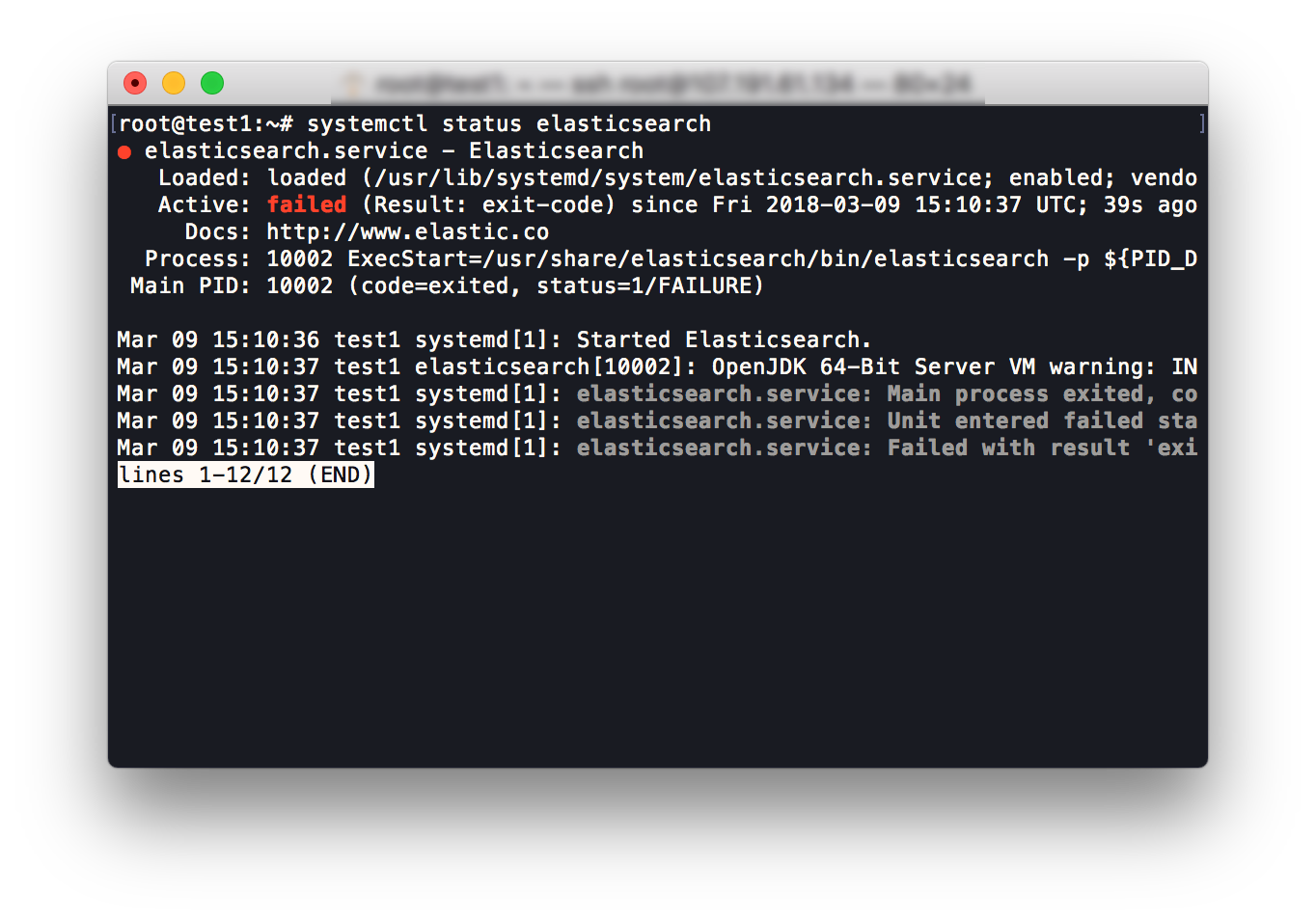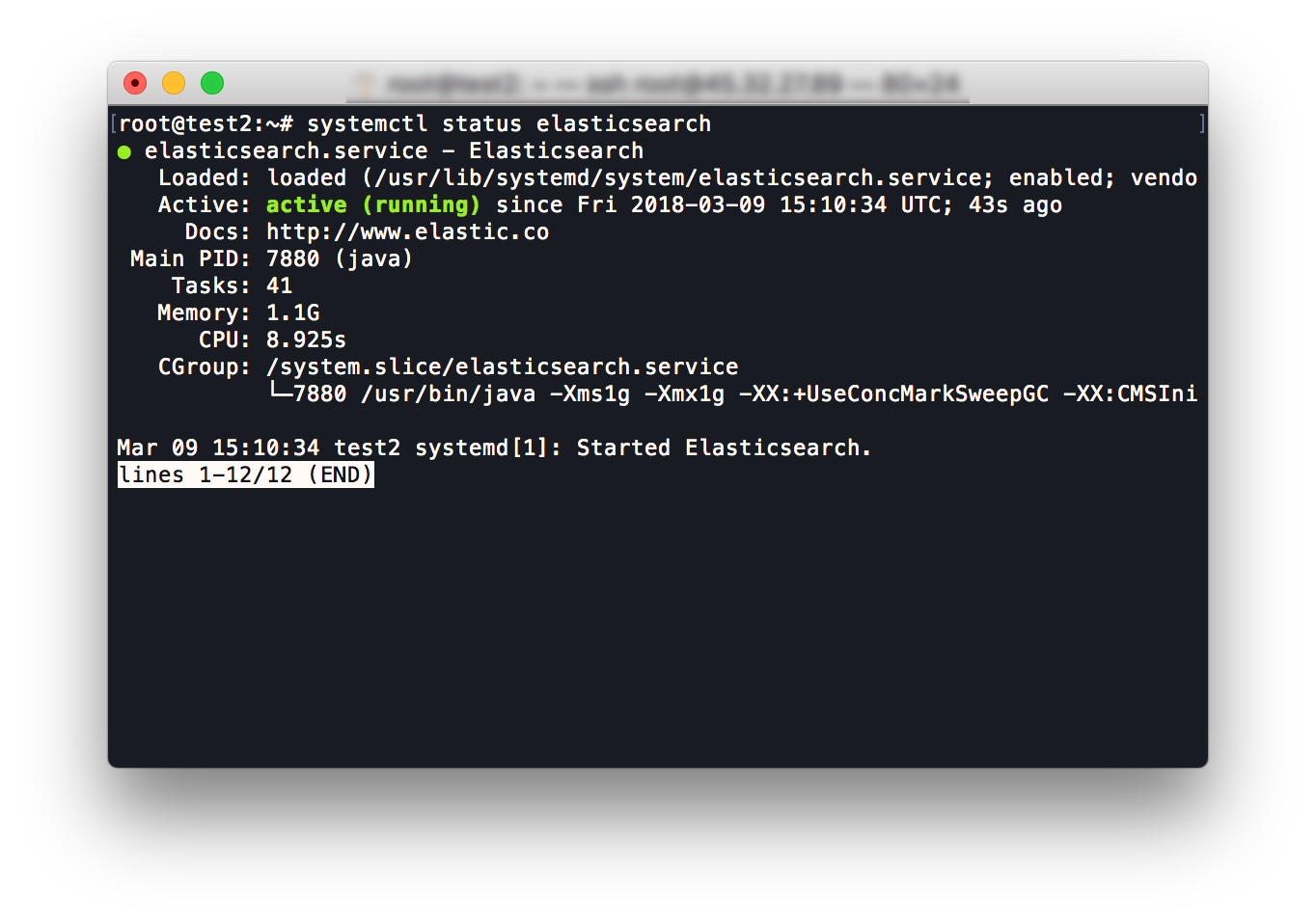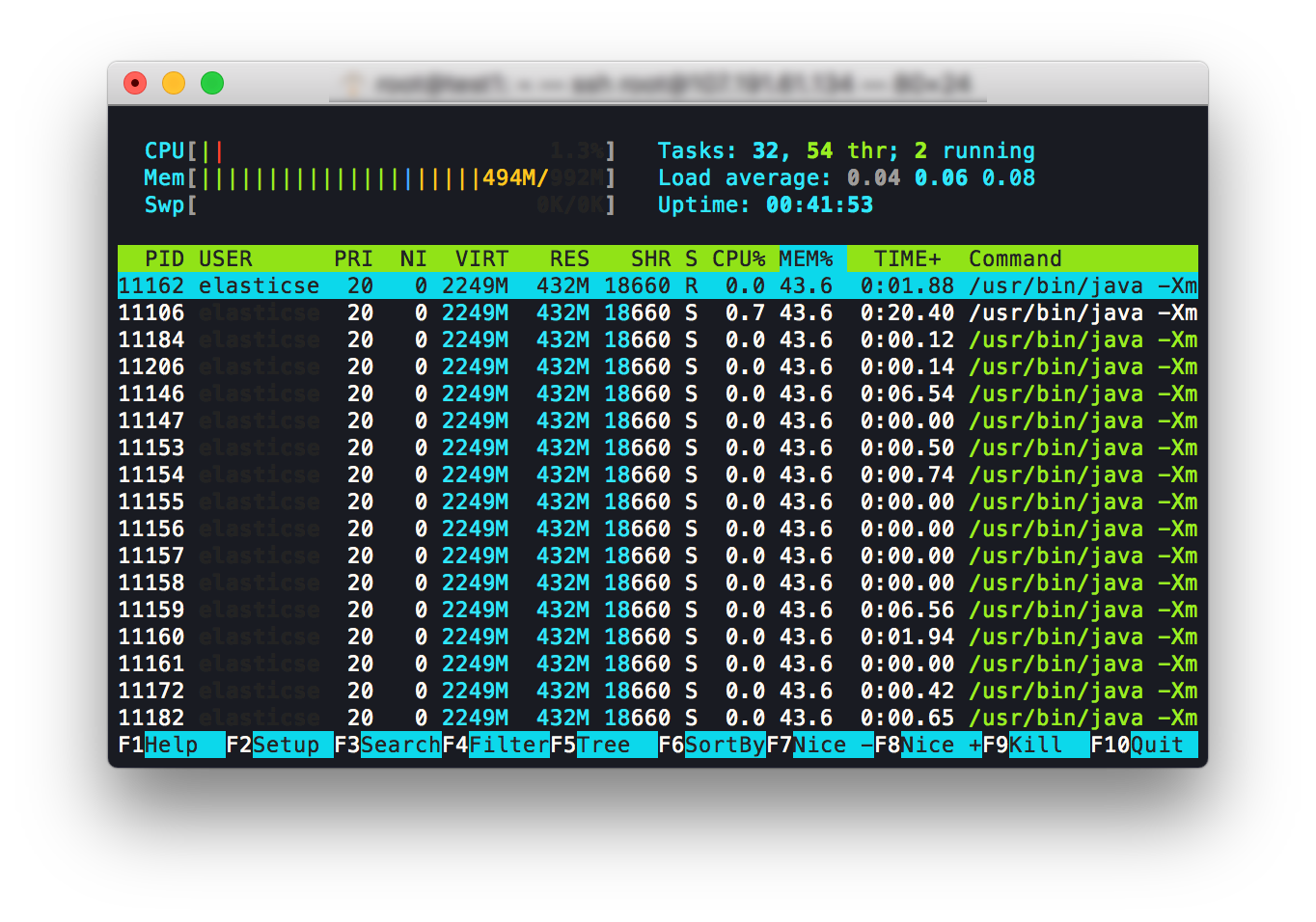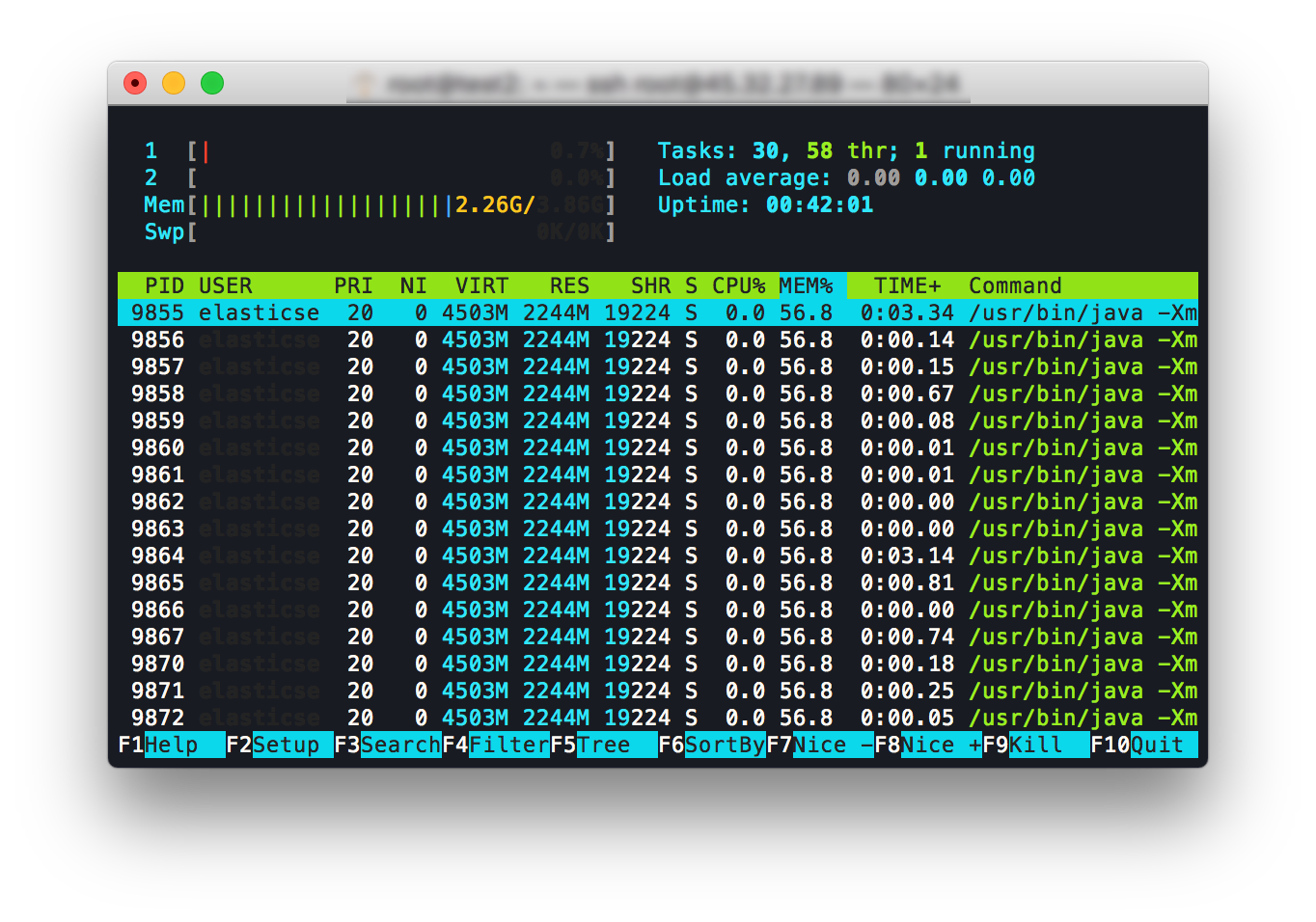4.7 KiB
Elasticsearch Guide
The following guide explains how to use Elasticsearch.
Why you might need Elasticsearch
If you want to use Full-text search, you should setup Elasticsearch.
Installing Pre-required dependency
Elasticsearch is built using Java, and requires at least Java 8 in order to run.
Install Java 8:
sudo apt install openjdk-8-jre-headless
The openjdk-8-jre package contains just the Java Runtime Environment. If you want to develop Java programs then please install the openjdk-8-jdk package.
You need to install the apt-transport-https.
sudo apt install apt-transport-https
Installing Elasticsearch
Import the Elasticsearch PGP Keyedit
Download and install the public signing key:
wget -qO - https://artifacts.elastic.co/GPG-KEY-elasticsearch | sudo apt-key add -
Installing from the APT repository
sudo echo "deb https://artifacts.elastic.co/packages/6.x/apt stable main" | sudo tee -a /etc/apt/sources.list.d/elastic-6.x.list
sudo apt update && sudo apt install elasticsearch
Running Elasticsearch with systemd
To configure Elasticsearch to start automatically when the system boots up, run the following commands:
sudo /bin/systemctl daemon-reload
sudo /bin/systemctl enable elasticsearch.service
Start Elasticsearch:
sudo systemctl start elasticsearch
If you want to check Elasticsearch status, run the following commands:
sudo systemctl status elasticsearch
Note: If your VPS has insufficient memory, Elasticsearch may not be able to start. See the Advanced Configuration section at the end of this document for some options if this is the case.
Configuring Mastodon for Elasticsearch
Change Elasticsearch configuration in .env.production to:
# Optional ElasticSearch configuration
ES_ENABLED=true
ES_HOST=localhost
ES_PORT=9200
Run chewy:deploy to create & populate index
su - mastodon
cd live
RAILS_ENV=production bundle exec rails chewy:deploy
You now need to restart Mastodon.
Advanced Elasticsearch Configuration (Optional)
If you can't start Elasticsearch, It's probable that the allocated memory is insufficient.
| RAM 1GB | RAM 4GB |
|---|---|
 |
 |
This guide may be useful if you can't start Elasticsearch, or if Elasticsearch uses too much memory.
First, Elasticsearch needs a lot of memory.
You should check this page.
But, as far as I can recollect, Mastodon does not require much memory for Elasticsearch.
When building Elasticsearch server on low memory VPS, It's necessary to change the configuration.
Change these lines in /etc/elasticsearch/jvm.options:
# Xms represents the initial size of total heap space
# Xmx represents the maximum size of total heap space
-Xms1g
-Xmx1g
Note: Are you worried about how much memory configuration need on your VPS? This list may be useful! In my opinion, It would be better to set it from 35% to 50% of the total memory.
| Memory | Xms | Xmx |
|---|---|---|
| 1GB | 256m | 256m |
| 2GB | 512m | 512m |
| 3GB | 1g | 1g |
| 4GB | 2g | 2g |
| RAM 1GB | RAM 4GB |
|---|---|
 |
 |
Please don't forget! This isn't necessarily the best configuration.
Warning: The memory in this list is for Elasticsearch. It's not the total memory of the VPS.
After changing any of these settings, start Elasticsearch:
sudo systemctl start elasticsearch
And check Elasticsearch status:
sudo systemctl status elasticsearch
Note: You can also configure Mastodon to use Elasticsearch on a different server.
If you want to use an Elasticsearch instance running on a different server, just include its address in .env.production
# Optional ElasticSearch configuration
ES_ENABLED=true
ES_HOST=Put the IP of Elasticsearch server here.
ES_PORT=9200
To configure your remote server, see the Elasticsearch documentation on network settings.